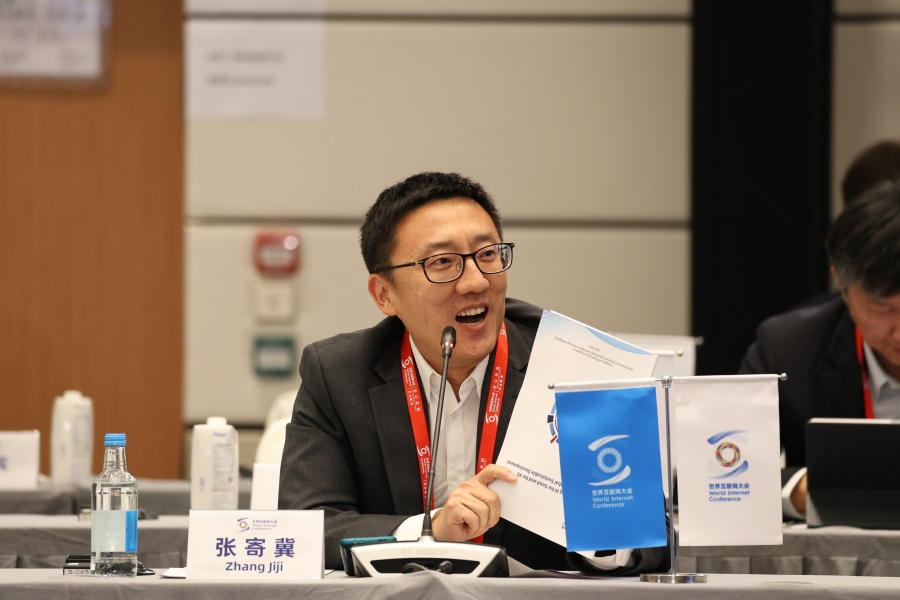
- Home
- Media Center
-
Events
- Wuzhen Summit
- Regional Forums
- Practice Cases of Jointly Building a Community with a Shared Future in Cyberspace
- World Internet Conference Awards for Pioneering Science and Technology
- The Light of Internet Expo
- Straight to Wuzhen Competition
- Global Youth Leadership Program
- WIC Distinguished Contribution Award
- Membership
- Research & Cooperation
- Digital Academy
-
Reports
- Collection of cases on Jointly Building a Community with a Shared Future in Cyberspace
- Collection of Shortlisted Achievements of World Internet Conference Awards for Pioneering Science and Technology
- Reports on Artificial Intelligence
- Reports on Cross—Border E—Commerce
- Reports on Data
- Outcomes of Think Tank Cooperation Program
- Series on Sovereignty in Cyberspace Theory and Practice
- Other Achievements
- About WIC
- 中文 | EN

Workshop on AI Governance and Sustainable Development|Zhang Jiji stresses balancing harm reduction and benefit enhancement in AI governance

Zhang Jiji, associate dean (research) of the Faculty of Arts and professor at the Department of Philosophy of the Chinese University of Hong Kong, speaks at the Workshop on AI Governance and Sustainable Development of the 2025 World Internet Conference Asia-Pacific Summit in Hong Kong on April 14. [Photo/wicinternet.org]
"Limiting harm" and "enhancing benefits" is the key challenge in artificial intelligence (AI) governance, said Zhang Jiji, associate dean (research) of the Faculty of Arts and professor at the Department of Philosophy of the Chinese University of Hong Kong, at the "AI Governance and Sustainable Development: for Good and for All" Workshop during the 2025 World Internet Conference Asia-Pacific Summit in Hong Kong on April 14.
"AI governance, on one hand, is about restricting AI from causing harm; on the other hand, seeks to enhance its benefits," Zhang stated. He said that a more pragmatic approach to AI governance should focus on leveraging AI's positive potential to generate more beneficial outcomes.
On the same day, the report of Governing AI for Good and for All—Empowering Global Sustainable Development was released at the summit, offering a comprehensive overview of the global progress, current development and existing challenges in harnessing AI for sustainable growth.
Zhang emphasized the value of the report, highlighting the need to focus on practical challenges and accelerate the development of AI for solutions.
He also noted that the report analyzed many applications and practical cases related to AI governance and sustainable development, which serve as useful references for bridging the digital divide and empowering global sustainable development.

The World Internet Conference (WIC) was established as an international organization on July 12, 2022, headquartered in Beijing, China. It was jointly initiated by Global System for Mobile Communication Association (GSMA), National Computer Network Emergency Response Technical Team/Coordination Center of China (CNCERT), China Internet Network Information Center (CNNIC), Alibaba Group, Tencent, and Zhijiang Lab.





